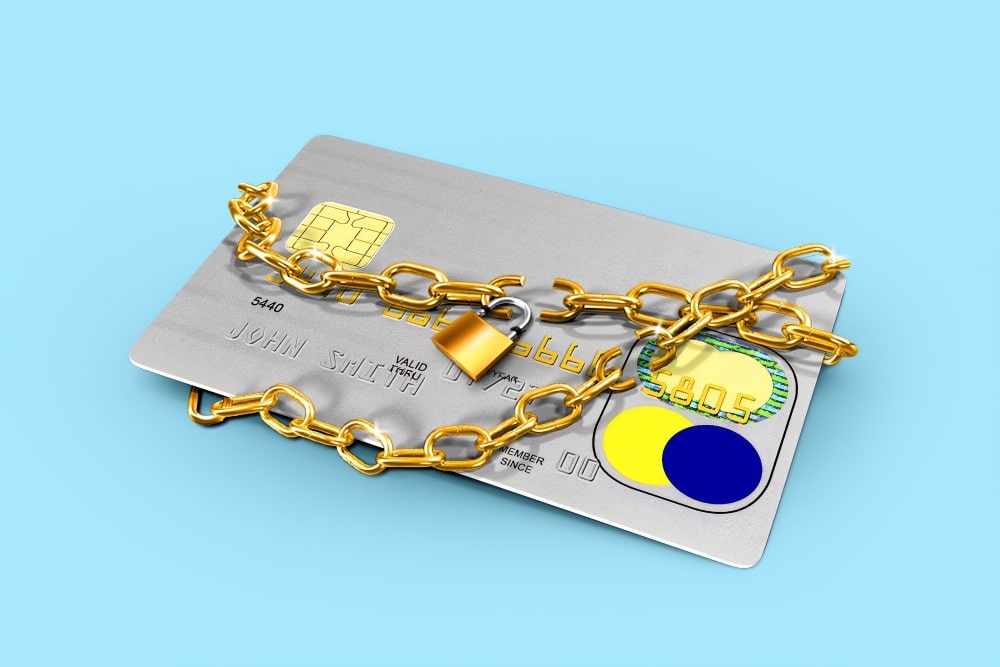If your guests use a credit card to pay for their vacation rental experience, there’s always a chance that they can issue a chargeback. A chargeback happens when a cardholder disputes a charge on their debit or credit card. On average, merchants win 40% of chargeback disputes. This isn’t a very promising statistic for vacation rental owners, which is why it is so important to be proactive when it comes to disputing chargebacks.
Chargeback meaning
There are many different reasons guests may issue a chargeback after their stay. Maybe the home didn’t meet their expectations, maybe they weren’t able to stay for their entire vacation, or something happened during their stay that they felt warranted getting their money back.
When a guest disputes the charge on their credit card, vacation rental owners have the option to dispute it. This can be a long, drawn-out process that has unpredictable results. The best thing a vacation rental owner can do is put policies in place to avoid chargebacks from happening in the first place.
Types of Chargebacks
But before we get into ways to avoid and manage them, it’s important to know about all the different types of chargebacks:
Merchant Error
This is the most common kind of chargeback. This happens when the guest feels that you, the merchant, have charged their card in error. It may be that the card was charged a different amount than the guest was expecting, or it was charged at a different time than agreed upon by the two parties.
Unfortunately, a guest could dispute late fees or other penalties, even if they are clearly listed in the contract. While recurring payments aren’t common in this industry, it could be another reason why guests file this kind of dispute.

If a guest suspects fraud on their card, they may issue a chargeback. Unfortunately, many vacation rental owners have experienced the chaos and confusion that comes with unauthorized card use. Guests may use a stolen credit card to pay for their vacation, and when the rightful owner finds out, they’ll issue a chargeback to dispute the unauthorized account.
Consumer Disputes
One of the most frustrating types of chargeback is the “friendly fraud” or consumer dispute chargeback. This happens when a guest stays at your vacation rental property, and then when they get home they dispute the charge on the credit card. They may claim they never stayed or that they were unhappy with the experience. Sometimes this happens when a guest wants a refund but does not want to discuss the issues with the vacation rental owner. This is one sign of a vacation rental scam.
The frustrating part about this chargeback is that it can be hard to determine which guests have legitimate complaints that warrant a chargeback or refund, and which guests are trying to get something for free.
COVID-19 Chargeback updates
Chargebacks are an unfortunate part of being in the vacation rental business, but with COVID-19 unexpectedly upending the travel, tourism, and hospitality industries, vacation rental owners are seeing more chargebacks than usual. This is happening because some guests have had to cancel due to COVID and aren’t receiving a refund or credit for their stay.
We’re living in strange and unpredictable times, and social distancing rules and shelter in place regulations have put many travelers in a situation where they had to cancel for reasons beyond their control.
As a vacation rental owner, you have to decide whether you’re going to stick firmly to your cancellation and refund policies, or if you’re going to make exceptions to avoid the possible chargeback process. Honest and transparent communication with guests, along with updated terms and contracts will help avoid costly misunderstandings.
If you do decide to modify your refund policy, make sure you always issue the refund back on the credit card used to make the reservation, never send a check. Guests could receive the check and then still dispute the charge on the card.
How to Prevent Chargebacks
Communication is the key to preventing chargebacks. Make sure your policies are updated for COVID-19 and that guests read, sign, and understand your policies for refunds and cancellations. Consistent communication throughout the stay will help you stay on top of any problems or concerns that the guest may have and want to bring up once they get home.
Here are some things you can do to prevent future chargebacks:
1. Highlight your cancellation policies at checkout

On the last step of your checkout process, include a checkbox with a link to your cancellation policies or require your guests to sign a copy. This will ensure that your guests supposedly read, understand and acknowledge your policies. Keep a date-and-time stamped record of this signed policy so you can access it later.
2. Provide guests with clear property descriptions
Share accurate information about your property with guests to avoid misunderstandings and surprises. Property size, views, neighborhood, available parking space and location are examples of pertinent information.
3. Make sure your amenities are up-to-date
Keep all your amenities, utilities and appliances mentioned in your listing or website in excellent condition. What might seem like a minor inconvenience to you might be unpleasant for your guests. WiFi connections, air conditioning or heating systems and heated pools are just a few examples that can leave you open to a chargeback if they do not work to your guest’s satisfaction.
4. Display policies clearly
We can’t stress enough how important vacation rental agreements and house rules are. Have your guests sign them and let them know where they can find your rental policies and official terms and conditions.
5. Set up a seamless check-In process
Double-check on your guest’s identification and credit card used to pay to ensure sure that the individual that has paid and the person that’s checking in is the same person.
6. Communicate with guests

Investing on customer support will go a long way, because the sooner a problem is answered, the less likely it is to become a bigger issue. Engage with them by requesting phone numbers and valid email addresses. You can easily spot any potential scams and prevent any future issues by revising their email addresses. For example, if your guest name and email doesn’t match or the email sequence or domain doesn’t make sense (e.g. sam123@mailinator.com).
7. Address guest concerns quickly
If your guest asks for a refund and that’s something you allow in your cancellation policies, then process it immediately. It doesn’t take too much time to issue a refund. But if your guest gets irritated and requests a chargeback, you may wind up spending too much time over it and paying extra fees.
8. Track transaction activity
Look into particular activities considered to be fraudulent, be cautious about any transactional behavior and enforce monitoring. For example, for reservations where the time between booking and arrival is short, you can contact your guest and request a copy of the ID of the bank card holder.
9. Document everything
Don’t forget to document everything related to your guests! Start by including the checkbox on your checkout process, have them sign and return your rental agreement and include your policies in your booking confirmation email. It will be your responsibility, with the chargeback claim process, to prove that the claim is fraudulent. The card issuer won’t depend on your word alone, so all of these documents will be useful for your dispute.
How to manage Chargebacks
You can update your policies, engage in transparent communication throughout the booking process, and offer unparalleled customer service and you can still end up with a notification of a chargeback. When this happens, there are a few things you can do. These are the first few steps in the chargeback process:
- Look into the details of the dispute. Codes associated with the chargeback will give you information about the type of chargeback so you can create a plan to move forward. They include a “work by date”, so make sure you respond to the notification immediately.
- If the chargeback is due to “friendly fraud” or a consumer dispute, you can take steps to challenge it. If the dispute is due to merchant error or unauthorized card use, you won’t be able to challenge it.
- Once you identify that it is due to a consumer complaint, you should start collecting documentation to prove that you provided the service (the vacation rental) that the guest paid for like for example:
-
- Signed rental agreement and house rules
- Booking details
- Evidence that the cardholder (guest) participated in the transaction
- Rebuttal letter addressing the cardholder’s (guest) claim, including your attempts to resolve this matter directly with the cardholder (guest)
- Copy of credit receipt
- Copy of ID/Passport
- Remain involved as the resolution of the chargeback claim could take up to 45 days.
Fighting unjust chargebacks can be a time-consuming process, but it can benefit your company in several ways. It allows you to keep rightly earned revenue. It may even discourage renters from trying this scheme again if they are challenged. As a business owner, there are things you can do to protect yourself and your business from people with bad intentions. Preventing and managing chargebacks starts with clear communication, flexibility, and consistency.


